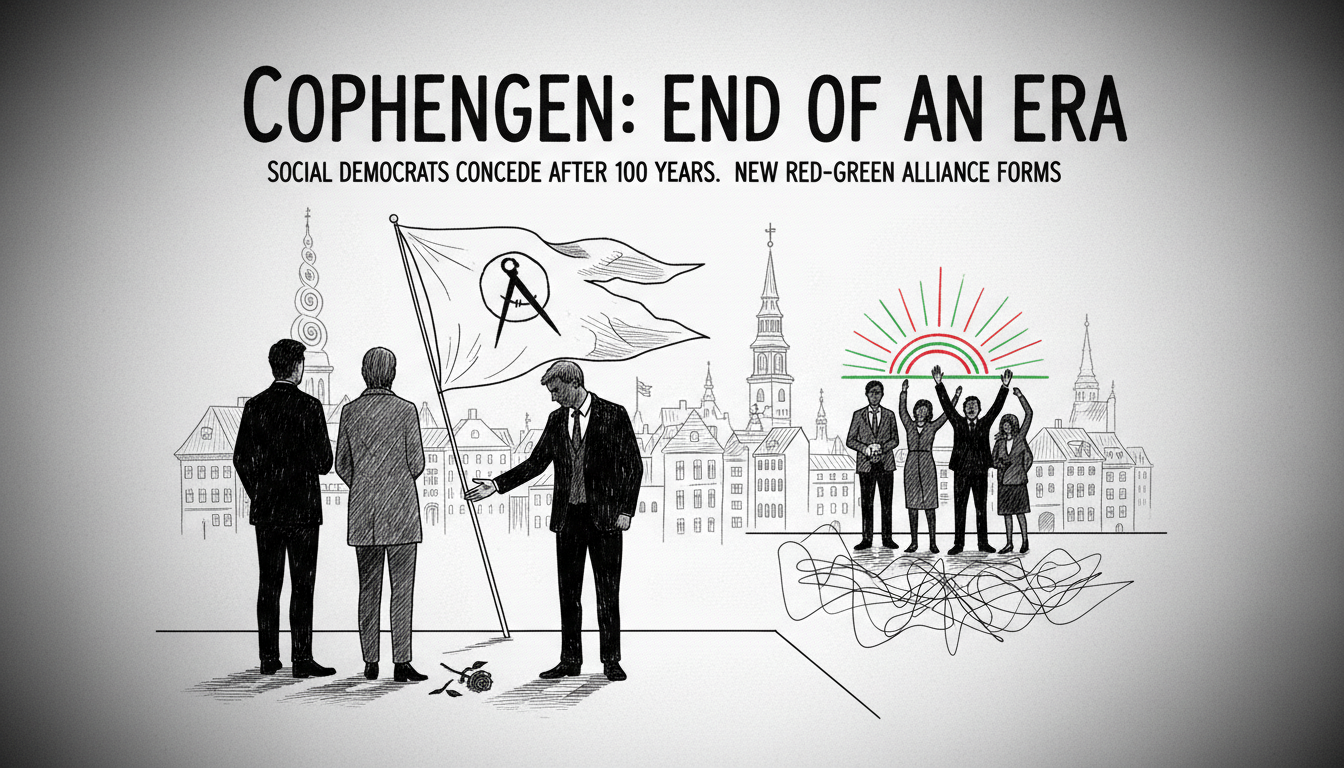Social Democratic lead candidate Pernille Rosenkrantz-Theil has acknowledged defeat in Copenhagen's mayoral election. She confirmed the party's loss during a press conference at Copenhagen City Hall on Wednesday morning.
"We lost Copenhagen now. I think that's extremely disappointing. But we need to get back on the horse," Rosenkrantz-Theil told reporters. The Social Democrats received only 12.7 percent of votes in Copenhagen, representing a 4.5 percentage point decline since the 2021 election.
Before the election, Rosenkrantz-Theil had stated she would not support any other candidate for the mayor position besides herself. She promised the party would go into opposition if she couldn't secure the top job.
"It turned out to be completely impossible. I gave it the chance I could. We in the Social Democrats chose to say that if we're going to lose them, we should die with our boots on, and that's what we did," she explained.
The Social Democrats never participated in the crucial negotiations at City Hall where a broad coalition government was formed. This coalition includes both the Red-Green Alliance and the Danish People's Party.
"The other parties had decided they wanted something different, and that's completely fair. We fortunately live in a democracy," Rosenkrantz-Theil noted. She added, "We knew it would be incredibly difficult, extremely difficult - that was the basic premise.
This election marks a historic shift in Copenhagen's political landscape. The city has had a Social Democratic mayor since the position was created in 1938. More significantly, the party has held power in the capital for over 100 years.
The Red-Green Alliance emerged as Copenhagen's largest party despite a small decline of 2.5 percentage points, securing 22.1 percent of votes. The Socialist People's Party became the second-largest party with 17.9 percent support.
Three left-leaning parties competed for the mayor position in Denmark's largest municipality. The outcome represents a dramatic realignment in urban Danish politics, reflecting changing voter preferences in major cities.
Copenhagen's political transformation signals broader trends affecting social democratic parties across Nordic capitals. Traditional working-class parties face challenges appealing to urban voters who increasingly prioritize environmental issues, housing affordability, and social liberalism.
The coalition negotiations produced an unusual political constellation. The inclusion of both the far-left Red-Green Alliance and the right-wing Danish People's Party suggests pragmatic compromise trumped ideological purity in forming the new city government.
For international observers, this election demonstrates how local politics in Nordic countries often feature complex coalition-building. The results may influence how other European cities approach urban governance and coalition formation.
The Social Democrats now face the challenge of rebuilding support in their former urban stronghold. Their decline in Copenhagen contrasts with their continued strength in rural areas and smaller cities, highlighting Denmark's growing urban-rural political divide.

